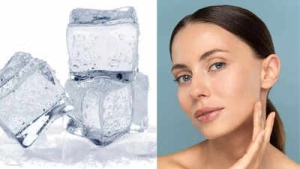Cold showers are becoming a popular natural wellness routine, praised for their ability to support both physical and mental well-being. Although stepping into cold water can feel uncomfortable at first, the long-term cold showers benefits are worth considering. Studies suggest that regular cold showers may improve circulation, strengthen heart health, and help regulate blood pressure. They can also boost mood, energy levels, and support muscle recovery. Cold water exposure may reduce inflammation and stimulate the immune system. When done safely, incorporating cold showers into your daily routine can be a simple and effective way to promote overall health naturally.
How cold showers impact your heart health
When you step into a cold shower, your body goes through a few quick changes. First, your blood vessels tighten (this is called vasoconstriction), which helps keep your core warm by sending more blood to important organs like your heart and brain. This can cause a short-term rise in blood pressure. Your heart also beats faster to keep you warm and get more oxygen around your body. Once you're out of the cold, your blood vessels relax and open up again (vasodilation), helping blood flow better.
A study in the Journal of Thermal Biology found that cold water exposure made heart rate and blood pressure go up temporarily, but they returned to normal within half an hour. This up-and-down effect may help your heart and blood vessels stay strong and respond better over time.
Health benefits of cold showers: Impact on heart, mind and metabolism
1. Enhanced circulation and vascular healthThe alternating vasoconstriction and vasodilation improve circulation, helping to flush toxins and deliver oxygen-rich blood to tissues. Improved circulation supports organ function and can reduce feelings of fatigue and cold extremities.
2. Boosted metabolism and calorie burningCold exposure activates brown adipose tissue (brown fat), which generates heat by burning calories. This thermogenic effect can modestly increase metabolic rate and aid weight management, which is beneficial for heart health.
3. Reduced inflammationCold showers have been shown to lower inflammation markers, which is important because chronic inflammation contributes to cardiovascular disease. The anti-inflammatory effects may also help alleviate muscle soreness and support faster recovery after exercise.
4. Stress reduction and mood enhancementRegular cold exposure has been linked to reductions in cortisol (the stress hormone), which can benefit heart health by lowering blood pressure and reducing strain on the cardiovascular system. Many people report improved mood and alertness after cold showers due to the release of endorphins.
Cold showers and blood pressure
For healthy individuals, brief exposure to cold water initially causes blood vessels to constrict, leading to a temporary rise in blood pressure. This natural response helps redirect blood flow to vital organs and preserve core body temperature. However, over time, regular cold water immersion can trigger beneficial adaptations in the cardiovascular system.
According to a study published in Clinical Physiology and Functional Imaging repeated exposure to cold water improves vascular function by enhancing arterial flexibility and endothelial function, the inner lining of blood vessels responsible for regulating blood flow. These improvements in vascular tone help regulate blood pressure more effectively, reducing strain on the heart and potentially lowering the risk of hypertension.
Risks and precautions for people with heart conditions
While cold showers offer benefits, they may pose risks for those with certain cardiovascular issues, including:
- Hypertension (high blood pressure): Sudden cold exposure may cause dangerous spikes in blood pressure.
- Arrhythmias or heart rhythm disorders: The shock from cold water can trigger irregular heartbeats in sensitive individuals.
- Coronary artery disease: Vasoconstriction may reduce blood flow in already narrowed arteries, increasing the risk of angina or heart attack.
Recommendation: If you have a known heart condition, consult your healthcare provider before trying cold showers or cold water immersion.
Other health benefits of cold showers
- Improved immune function: Cold water exposure may stimulate white blood cell production and improve immune responsiveness, helping the body fight infections.
- Enhanced skin and hair health: Cold showers tighten pores and reduce skin inflammation, potentially improving complexion. They also help close hair cuticles, leading to shinier, healthier hair.
- Increased energy and mental clarity: The shock of cold water triggers a rush of adrenaline and increased oxygen intake, which can enhance alertness and cognitive function.
How to safely incorporate cold showers into your routine
- Start gradually: Begin with warm water and slowly lower the temperature over several days or weeks.
- Keep sessions short: Aim for 30 seconds to 2 minutes of cold exposure per shower initially.
- Listen to your body: Stop immediately if you feel dizzy, excessively cold, or unwell.
- Avoid cold showers if ill: If you have a fever, respiratory illness, or are extremely fatigued, cold showers might be too stressful.
- Consult your doctor: Especially important for those with cardiovascular disease, high blood pressure, or respiratory conditions.
Long distance running can lower your risk of colon cancer; know what study says
 Daren Sammy Fined, Handed Demerit Point for Umpire Criticism After Test Match Comments
Daren Sammy Fined, Handed Demerit Point for Umpire Criticism After Test Match Comments
 Gavaskar Calls for Yadav's Inclusion, Questions Middle Order After India's Test Defeat
Gavaskar Calls for Yadav's Inclusion, Questions Middle Order After India's Test Defeat
 Decoding Your Health: Spotting 5 Prediabetes Warning Signs Before a Blood Test
Decoding Your Health: Spotting 5 Prediabetes Warning Signs Before a Blood Test
 X Corp. Cracks Down: Half a Million Indian Accounts Suspended for Policy Breaches
X Corp. Cracks Down: Half a Million Indian Accounts Suspended for Policy Breaches
 Headline:
Early Warning Signs: 5 Heart Attack Symptoms to Watch Out For Weeks in Advance
Headline:
Early Warning Signs: 5 Heart Attack Symptoms to Watch Out For Weeks in Advance
 Facial Icing: Benefits, Risks, and Safe Application of This Viral Beauty Trend
Facial Icing: Benefits, Risks, and Safe Application of This Viral Beauty Trend
 Chess Sensation Praggnanandhaa Joins Magnus Carlsen's Team Liquid for Esports World Cup
Chess Sensation Praggnanandhaa Joins Magnus Carlsen's Team Liquid for Esports World Cup
 Mastering JPG to PDF Conversion: A Graphic Designer's Guide to Quality and Efficiency
Mastering JPG to PDF Conversion: A Graphic Designer's Guide to Quality and Efficiency
 MI New York's Tajinder Dhillon Shines: From IPL Benchwarmer to MLC Star
MI New York's Tajinder Dhillon Shines: From IPL Benchwarmer to MLC Star
 Akmal Blasts PCB's Interim Coach Choice: Ex-Cricketer Questions Logic Behind Mahmood Appointment
Akmal Blasts PCB's Interim Coach Choice: Ex-Cricketer Questions Logic Behind Mahmood Appointment